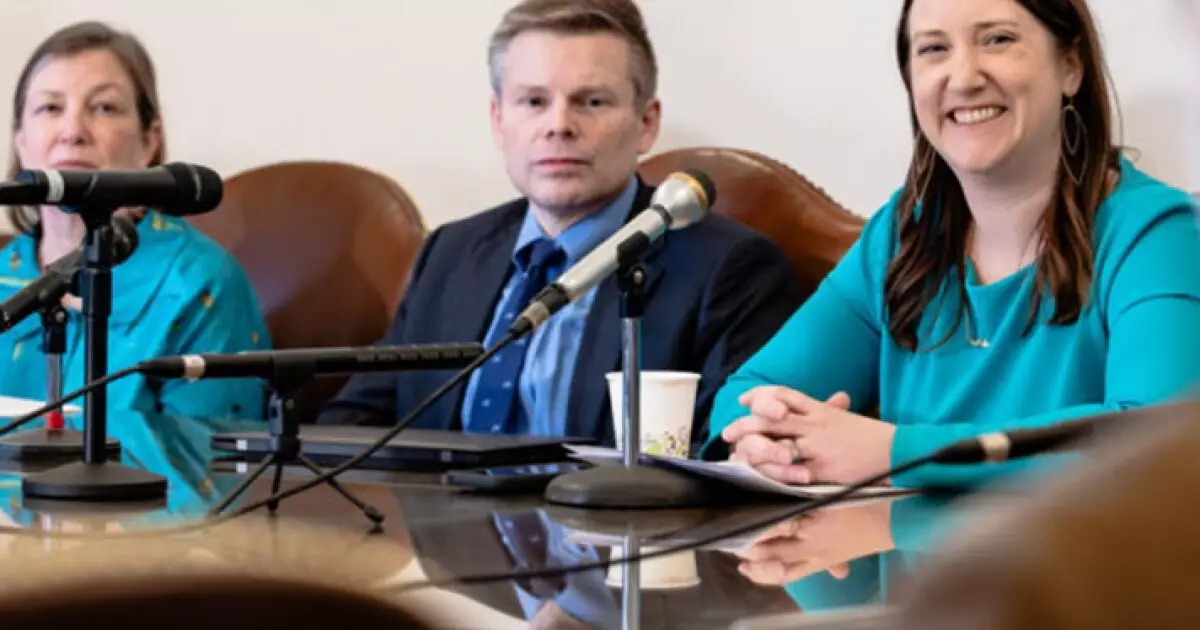In a political landscape often riddled with discord, the recent approval of a $77.9 billion budget in Washington state stands as a testament to the complexities and challenges faced by its lawmakers. This exorbitant budget, which must address a staggering $16 billion deficit over the next four years, has invoked a flood of emotions and debates, highlighting a deeper dichotomy within the political framework of the state. While the financial support allocated to education, natural resources, and housing is commendable, the underlying mechanisms to achieve such funding raise alarm bells about fiscal responsibility and the true cost of governance.
The budget includes a colossal $8.7 billion in tax increases, aimed at alleviating the deficit, alongside $5.9 billion in program cuts. The approach to managing such a sizeable financial chasm certainly showcases the complicated state of current governance; however, it also signals troubling trends in tax policy that could have lasting impacts on residents. How much is too much when it comes to taxing citizens to fuel government spending, especially given the state’s burgeoning bureaucracy and welfare programs?
The Challenges of Leadership
A Democrat-controlled legislature must navigate a precarious path, balancing the expectations of constituents while appeasing the financial constraints articulated by Governor Bob Ferguson. His interim reign has already tested his resolve, as he returned conflicting budget propositions to the legislature, advocating for fiscal prudence over unchecked fiscal expansion. The reluctance to pursue a wealth tax, which could face legal challenges, starkly underscores a growing discontent with progressive taxation, and points to a broader ideological struggle within the party itself.
During the budget deliberations, the tension between Ferguson and party leaders became palpable. Despite lawmakers’ claims of cooperation, the undercurrents of friction reveal significant ideological divides on how to address the financial crisis without jeopardizing future economic stability. The Governor’s hesitance to endorse the final product indicates a critical need for a recalibrated economic strategy that does not solely rely on raising taxes but also emphasizes structural reforms to improve the efficiency of government spending.
The Cost of Progressivism
The proposed budget earmarks over $975 million for education, a marked improvement in investment. This is undoubtedly a significant step forward and appeals to many voters invested in improving the educational landscape. Yet this may come at the expense of vital social programs like drug rehabilitation and child support, highlighting a pattern where fiscal decisions disproportionately affect the vulnerable. While legislators herald their funding of education as a “victory,” they must confront the stark reality that essential social services are being sacrificed. This critical choice could lead to dire consequences for families already on the tipping edge of stability, raising fundamental questions: who ultimately bears the burden of fiscal irresponsibility?
The gas tax hike and special taxes on electric vehicles are also indicative of a troubling trend: the tendency to penalize certain demographics to fulfill an agenda instead of fostering economic growth through more inclusive means. While heightened spending for environmental initiatives may attract progressive accolades, they could alienate working-class families needing relief at the gas pump. This misalignment of priorities could have dire implications, as economic relief measures force residents to bear the brunt of fiscal deficiencies repeatedly.
A Shift Towards Accountability
As the budget awaits Governor Ferguson’s final signature, the focus now shifts to accountability and transparency in government spending. Lawmakers tout a “balanced approach” to financial planning, yet the incorporation of staggering tax increases suggests that a portion of the populace will inevitably bear a heavier load. Key leaders must address whether the productivity and efficiency of funds distributed will provide adequate long-term benefits—or if they will merely exacerbate inequality and dependence on state resources.
Voters need assurance that their tax dollars are creating measurable outcomes, promoting both education and opportunity while honoring fiscal responsibility. The Aaa rating assigned by Moody’s and the positive outlook from S&P may seem encouraging on the surface, but they do not provide a buffer against potential taxpayer backlash or economic stagnation. As the intricate dance of politics unfolds, email chains, public statements, and intricate negotiations will only hold weight when backed by tangible results that resonate within the community fabric of Washington.
Amidst rising discontent around taxation and spending, there remains a critical need for proactive engagement between lawmakers and constituents. It’s a call for genuine dialogue and a shared vision for a sustainable future—not merely financial survival amidst escalating taxes, but a commitment to economic growth that benefits all Washingtonians.

